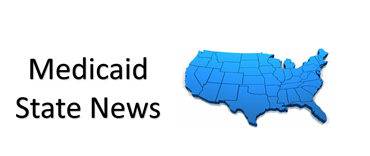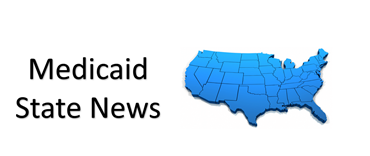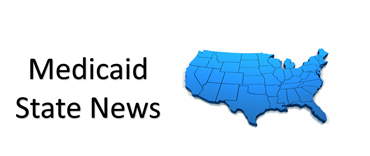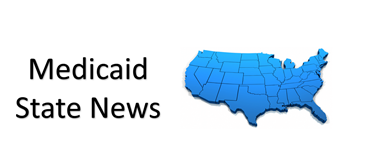MM Curator summary
Arkansas has revised its expansion program to tie managed care coverage to work and job training requirements.
The article below has been highlighted and summarized by our research team. It is provided here for member convenience as part of our Curator service.
An Arkansas Senate committee Thursday endorsed legislation that would change the state’s current version of Medicaid expansion that provides private health insurance to more than 300,000 low-income people to a program that incentivizes work or continuing education.
With no audible dissenters, the eight-member Senate Insurance and Commerce Committee recommended approval of Senate Bill 410 by Sen. Missy Irvin, R-Mountain View. The bill now goes to the Senate.
If enacted, the measure — the proposed “Arkansas Health and Opportunity for Me Act” — would clear the way for the state Department of Human Services to apply for a waiver from the federal government for what would be called the proposed ARHOME program.
ARHOME would replace the Arkansas Works program starting next year. The state law for the Arkansas Works version and the federal waiver for it expire Dec. 31.
Under the proposal, low-income people in the program would remain qualified to be covered by private health plans only if they meet certain criteria to be set by the Human Services Department, including working or continuing education. Those who failed to qualify would be moved to a traditional fee-for-service model.
[RELATED: See complete Democrat-Gazette coverage of the Arkansas Legislature at arkansasonline.com/legislature]
Irvin said the state’s partnership with private health insurance plans through the Medicaid expansion during the past several years has helped bring billions of federal dollars into the state’s economy and that “has helped stabilize our health care economy and infrastructure.”
Under the new program, the federal government would continue to pay 90% of the cost of the Medicaid expansion program, and Arkansas would cover the other 10%.
Irvin said the proposed program is projected to bring in $9.7 billion from the federal government over the next five years, while shifting the program to the traditional Medicaid fee-for-service program is projected to bring in about $3 billion less in federal funds over that period.
The current program pays higher rates to hospitals and health care providers, and that opens the door for increased access to medical care for Medicaid patients, she said.
The Medicaid expansion program provides private health insurance coverage for adults earning up to 138% of the federal poverty level, which is $17,774 for a single person and $36,570 for a family of four.
The program’s enrollment totaled 311,511 Arkansans as of Feb. 1, up from about 250,233 on March 1, 2020, before the coronavirus pandemic arrived in Arkansas, according to the Human Services Department.
Arkansas’ version of Medicaid expansion initially was called the private option and was authorized in 2013 by the Republican-controlled Legislature and then-Gov. Mike Beebe, a Democrat. In his first term, Republican Gov. Asa Hutchinson signed legislation to create a work requirement for the Medicaid expansion program, which was rebranded as Arkansas Works.
The state work requirement for the program hasn’t been enforced since a federal judge ruled in March 2019 that federal law didn’t allow then-President Donald Trump’s administration to authorize that requirement in Arkansas. That ruling has been appealed to the U.S. Supreme Court.
President Joe Biden’s administration last week asked the U.S. Supreme Court to cancel March 29 oral arguments in the case, saying that it has “preliminarily determined” that the work-related requirements would “not promote the objectives of the Medicaid program.”
Because the annual appropriation for the Medicaid expansion must be approved by a three-fourths majority of the Legislature each year, the program faces an annual challenge in the Republican-dominated body.
Irvin said the proposed program is intended to target individuals “where they are in their lives … and yield all the resources available to them that we already offer in many areas” or plan to offer to make a difference.
“I am thrilled about this health policy,” she said.
“It is a phenomenal rural health initiative to be honest with you, but it also combines with our urban issues as well,” Irvin said.
The proposed program also would include:
• Acute mental health crisis services and substance abuse services.
• Home visiting programs for pregnant women and babies in the first two years of life.
• Services to connect with young adults who were formerly in foster care, formerly incarcerated or formerly in the Division of Youth Services custody, and veterans.
But Sen. Keith Ingram, D-West Memphis, said he is concerned that the average Arkansan in the Medicaid expansion program doesn’t distinguish between private health insurance coverage and traditional Medicaid fee-for-service coverage.
“If they don’t and they fall to Medicaid, I’m afraid when they want to go see a physician that that physician might not be accepting [traditional] Medicaid, and that individual is going to turn around and go back to the emergency rooms and undo several years of what we tried to do in getting people health coverage from providers,” he said.
“How are our citizens going to know the difference on the incentives in order to take advantage of private health insurance?”
Dennis Smith, senior adviser for Medicaid and health care change at the Department of Human Services, said the private health insurance carriers in the program will want to meet quality performance measures, so a carrier could offer the insured a gift card to get flu shots, annual health checkups and various screenings.
“So the performance measures and the incentives on the health initiatives go hand in hand to make certain people are incentivized to do that, and carriers are doing it because they know it works,” he said.
Ingram said communication is important to people in the Medicaid expansion program.
“Forgive us if we can be a little skeptical because of what happened with the total debacle on the work requirement,” he said. “Many, many people did not know that they did not have insurance until they went to their provider. There was no communication to them. They didn’t know what they had to get it. I know that is something that is important that has to be addressed this time around.”
Irvin said she views the current Arkansas Works program as “a one-size-fits-all” approach, and she believes work is important and allows people to be innovative, creative and productive.
But she said the one-size-fits-all approach doesn’t work for all people in the program.
“But we also know that we want there to be a health policy that can engage these people to find better work,” Irvin said. “That’s what we do in career and technical [education].”
The proposed program “breaks down all those silos and it targets and is intentionally designed around that person and where they are in life to be able to connect them with the [Division] of Workforce Services … and to able to happily improve somebody’s life,” she said.
“I see ARHOME as really kind of the last piece of the puzzle to really incentivize both better health outcomes, but also life circumstances for that individual, and is intentionally designed to do it … and bring the full force of government programs, both at the federal and at the state level, in a way that we can better communicate what’s out there for them,” Irvin said.
Under Senate Bill 410, there is a provision on if there is an opportunity to request from the federal government during the next five years either a block grant or a work requirement, the department should begin that process, said Department of Human Services Secretary Cindy Gillespie. “It does not say DHS will go ask for a work requirement now.”
Gillespie said one of the goals of the proposed program is to try to connect people with opportunities, including education and training, that will help them move toward economic independence.
“That’s where work comes in for some portion of the population,” she said.
The program’s population now totals about 311,000 — up from about 250,000 a year ago — because of the covid-19 pandemic, so there are a lot of people in the program who weren’t there a year ago and who were largely working a year ago, Gillespie said.
The proposed program “is very much a collaborative effort between us, workforce services, career ed, chamber of commerce, etc., helping connect people to opportunities,” she said.
Irvin said the bill would create accountability and oversight committees.
“We added more oversight to go before the Legislative Council as well if certain metrics that we set are not met,” she said.
Arkansas Department of Human Services (DHS) Secretary Cindy Gillespie addresses the media as she, Governor Asa Hutchinson and State Legislators Sen. Missy Irvin and Rep. Michelle Gray, discuss proposed legislation to replace the Arkansas Works program on Monday, March 1, 2021. See more photos at arkansasonline.com/32home/..(Arkansas Democrat-Gazette/Stephen Swofford)
Clipped from: https://www.arkansasonline.com/news/2021/mar/05/measure-on-medicaid-clears-insurance-panel/











